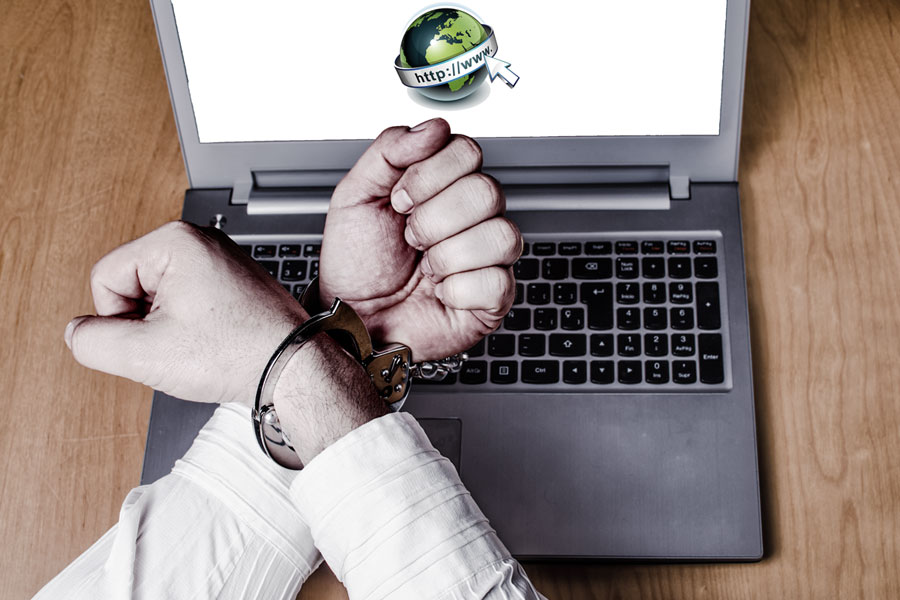
Viewpoints | May 07,2022
If there is a genre that continues to inspire and hold audiences in awe, it is animation. It seems to be the only type of film where commercial appeal meets creative liberty.
Sadly, there is a hitch - they have to be family oriented. The kids have to watch them too. There is really nothing inherently wrong with this except that some subject matters are very complicated. And when a movie invokes a particular subject, presents it creatively, but decides not to even mention some of the more squeamish aspects of a topic, one cannot help but feel a tinge of disappointment.
Ralph Breaks the Internet is one such movie. A sequel to the 2012 Wreck-It Ralph, it builds on the universe and characters that it introduced in the first installment and takes the audience into the world of the internet. But it falls short of expounding on the deeper and darker implications of the global network of computers.
Wreck-It Ralph introduced us to the titular character who is a villain in an arcade game called Fix-It Felix Jr. But whenever the arcade is closed, he goes about his regular life with other characters in other arcade games in a power strip. But his day job interferes and he is still seen as the odd one out owing to his villain role in the video game. By the end of the movie, he manages to become the good guy and win himself a best friend, Vanellope, and social acceptance.
In the second film, circumstance leads Ralph and Vanellope to venture into the vast and bluish world of the internet to save the arcade game of the latter. The internet is depicted as a city. The skyscrapers are popular sites, birds are tweets, pop-up ads are obnoxious salesmen and videos become viral in auctions where users pay with internet likes, essentially the currency of that reality.
Most of all, the most terrible computer viruses are emotional problems, with one of the most toxic being insecurity.
The movie is an adventure worth the ticket price. It delivers on plot, theme and rounded characters that grow and change. The ending in itself is praiseworthy in settling conflict not through a fist-fight but a confrontation by the protagonist with his own biases.
The film was co-directed by Rich Moore, who also directed Wreck-It Ralph. His best work is Zootopia, which he co-directed, and with the Ralph movies the body of his work in feature films speak to a particular theme and style.
Zootopia, like this movie, is brilliant for creating a world bereft of human beings and their machinations but seething with characters and universes that bare a striking resemblance to the one we inhabit. Moore seems to have found the perfect hiding place for themes and subject matters that one suspects whether or not children understand or care about.
How many kids noticed that the carnivore-herbivore tension and conflict in Zootopia was a manifestation of the strained race relations back here in reality?
The same can be said for Ralph Breaks the Internet. It is a world inhabited by bits of zeros and ones that have a purpose and character. This is in contrast to human users in the internet world of the movie, which do not seem much more than Zombies, transferring their knowledge and memories unwittingly to zero-and-one programs like Ralph.
This was perhaps where Moore should have focused. There is enough adventure and excitement in this film to pass muster in the eyes of most sophisticated audiences. But had he not merely put aside a far bigger, complex and scarier philosophical argument within the world that he creates, it would have been a movie that stands in the same ball game as Zootopia.
PUBLISHED ON
Jan 12,2019 [ VOL
19 , NO
976]

Viewpoints | May 07,2022

Radar | Apr 20,2019

View From Arada | Apr 22,2022

In-Picture | Sep 07,2025

Life Matters | Aug 25,2024

Radar | Sep 17,2022

Sunday with Eden | Nov 11,2023

Agenda | Jul 13,2020

Life Matters | Dec 16,2023

Life Matters | May 11,2024

Photo Gallery | 176787 Views | May 06,2019

Photo Gallery | 167000 Views | Apr 26,2019

Photo Gallery | 157552 Views | Oct 06,2021

My Opinion | 136934 Views | Aug 14,2021

Oct 18 , 2025
The political establishment, notably the ruling party and its top brass, has become p...

Oct 11 , 2025
Ladislas Farago, a roving Associated Press (AP) correspondent, arrived in Ethiopia in...

Oct 4 , 2025
Eyob Tekalegn (PhD) had been in the Governor's chair for only weeks when, on Septembe...

Sep 27 , 2025
Four years into an experiment with “shock therapy” in education, the national moo...

Oct 18 , 2025 . By NAHOM AYELE
In a sweeping reform that upends nearly a decade of uniform health insurance contribu...

A bill that could transform the nutritional state sits in a limbo, even as the countr...

Oct 18 , 2025 . By SURAFEL MULUGETA
A long-planned directive to curb carbon emissions from fossil-fuel-powered vehicles h...

Oct 18 , 2025 . By BEZAWIT HULUAGER
Transaction advisors working with companies that hold over a quarter of a billion Bir...